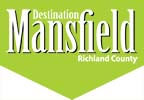New taxes on admission tickets, rental cars and commercial parking lots could help Columbus pay for the arts, tourism and human services, according to a panel that city leaders convened to study funding options.
The 13-member Funding Review Advisory Committee released five recommendations yesterday afternoon after a yearlong study of how to increase funding for the three priorities, which now receive hotel-tax money.
The recommendations:
• An admissions surcharge, also known as an admissions tax. State law allows cities to charge a tax on the admission price of a ticket to any event within the city limits. That could include taxing sporting events at Ohio State University, Nationwide Arena and Crew Stadium.
The proposal is similar to one made by the Greater Columbus Arts Council to Franklin County commissioners this year. That group recommended a 5 percent “seat fee.” All three commissioners expressed lukewarm support for the proposal at the time.
The committee predicted that such a tax would generate $1.25 million for every 1 percent surcharge — $6.25 million at the arts council’s suggested rate. The tax would need the approval of the Columbus City Council.
• A tax on rental vehicles. This tax would need voter approval. The panel estimated that it would generate $1.2 million per 1 percent surcharge if enacted countywide. Columbus voters rejected a similar proposal in 2002.
• A surcharge on commercial parking lots. State law allows cities to tax parking-lot owners a maximum of 8 percent, according to the committee’s report. The city does not levy this tax and could enact it with a vote by the city council. That tax would generate about $250,000 per 1 percent surcharge.
• Using casino revenue. The panel recommends that the city look at what casino revenue it has left over after using it to fill in state cuts in local-government funding. The city anticipates about $14 million in tax revenue from casinos next year and $19 million in 2014, the committee said.
• Reallocate tax revenue from hotels and motels. The city estimates it will generate about $15 million this year from the hotel/motel tax. The committee did not detail how to reallocate the tax funds and said it would not recommend doing so unless other money from new taxes becomes available.
City arts, culture and tourism groups were quick to applaud the report, linking increased funding with economic development and jobs. “We now have a unique opportunity to enhance the sustainability of the arts community for the future,” said Milt Baughman, the president of the Greater Columbus Arts Council.
Officials from Experience Columbus said the recommendations are based on methods that have worked in other cities.
“This process the mayor has put into place has really been a wonderful conversation developer for our community,” said Paul Astleford, the president and CEO of the organization. “The kind of open and very honest discussions between Experience Columbus and the city’s arts organizations and social-service organizations has been productive.
Mayor Michael B. Coleman and City Council President Andrew J. Ginther, who commissioned the panel, said through spokesmen that they had just received the report yesterday and did not have enough information to comment. County commissioners also declined to comment.
Commissioners Marilyn Brown, John O’Grady and Paula Brooks shot down the idea of using casino revenue or a rental-car tax to raise funds when the Arts Council proposed them earlier this year. O’Grady said then that he was against taxes that would affect low-income families who want to attend sporting, musical or arts events.
“I don’t want this to impact or deter folks that are buying a $6 Clippers ticket,” O’Grady said at the time. “(The admissions tax) seems to be the best option, but it has to be done right. We are going to need to have many more discussions about this.”
Tom Katzenmeyer, chairman of the FRAC committee, said the group looked at best practices of about 50 cities.
“What we have now in this report is basically a menu of options to choose from,” he said. “We are now at the beginning of the public discussion about these issues.”
The committee did concede that some of its recommendations will take “considerable time” to implement. It encouraged city leaders to think of short-term funding options, such as asking for private donations.
“If the current challenges of each group are not addressed now,” the report says, “it will make it much more difficult to bring them up to a sustainable level in the future.”
Dispatch reporters Josh Jarman and Steve Wartenberg contributed to this story.
